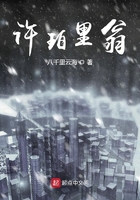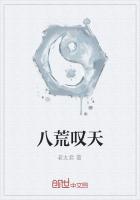“Why don’t you speak, mon cousin?” the princess shrieked all of a sudden, so loudly that they heard her voice, and were alarmed by it in the drawing-room. “Why don’t you speak when here a meddling outsider takes upon herself to interfere, and make a scene on the very threshold of a dying man’s room? Scheming creature,” she muttered viciously, and tugged at the portfolio with all her might, but Anna Mihalovna took a few steps forward so as not to lose her grasp of it and changed hands.
“Ah,” said Prince Vassily, in reproachful wonder. He got up. “It is ridiculous. Come, let go. I tell you.” The princess let go.
“And you.”
Anna Mihalovna did not heed him.
“Let go, I tell you. I will take it all upon myself. I will go and ask him. I … you let it alone.”
“But, prince,” said Anna Mihalovna, “after this solemn sacrament, let him have a moment’s peace. Here, Pierre, tell me your opinion,” she turned to the young man, who going up to them was staring in surprise at the exasperated face of the princess, which had thrown off all appearance of decorum, and the twitching cheeks of Prince Vassily.
“Remember that you will have to answer for all the consequences,” said Prince Vassily sternly; “you don’t know what you are doing.”
“Infamous woman,” shrieked the princess, suddenly pouncing on Anna Mihalovna and tearing the portfolio from her. Prince Vassily bowed his head and flung up his hands.
At that instant the door, the dreadful door at which Pierre had gazed so long, and which had opened so softly, was flung rapidly, noisily open, banging against the wall, and the second princess ran out wringing her hands.
“What are you about?” she said, in despair. “He is passing away, and you leave me alone.”
The eldest princess dropped the portfolio. Swiftly Anna Mihalovna stooped and, snatching up the object of dispute, ran into the bedroom. The eldest princess and Prince Vassily recovering themselves followed her. A few minutes later the eldest princess came out again with a pale, dry face, biting her underlip. At the sight of Pierre her face expressed irrepressible hatred.
“Yes, now you can give yourself airs,” she said, “you have got what you wanted.” And breaking into sobs, she hid her face in her handkerchief and ran out of the room.
The next to emerge was Prince Vassily. He staggered to the sofa, on which Pierre was sitting, and sank on to it, covering his eyes with his hand. Pierre noticed that he was pale, and that his lower jaw was quivering and working as though in ague.
“Ah, my dear boy,” he said, taking Pierre by the elbow—and there was a sincerity and a weakness in his voice that Pierre had never observed in him before—“what sins, what frauds we commit, and all for what? I’m over fifty, my dear boy. … I too. … It all ends in death, all. Death is awful.” He burst into tears.
Anna Mihalovna was the last to come out. She approached Pierre with soft, deliberate steps. “Pierre,” she said. Pierre looked inquiringly at her. She kissed the young man on the forehead, wetting him with her tears. She did not speak for a while.
“He is no more. …”
Pierre gazed at her over his spectacles.
“Come. I will take you back. Try to cry. Nothing relieves like tears.”
She led him into the dark drawing-room, and Pierre was glad that no one could see his face. Anna Mihalovna left him, and when she came back he was fast asleep with his arm under his head.
The next morning Anna Mihalovna said to Pierre: “Yes, my dear boy, it is a great loss for us all. I do not speak of you. But God will uphold you; you are young, and now you are at the head of an immense fortune, I hope. The will has not been opened yet. I know you well enough to know that this will not turn your head, but it will impose duties upon you and you must be a man.”
Pierre did not speak.
“Perhaps, later, I may tell you, my dear boy, that if I had not been there God knows what would have happened. You know, my uncle promised me, only the day before yesterday, not to forget Boris. But he had no time. I hope, dear friend, that you will fulfil your father’s desire.”
Pierre did not understand a word, and colouring shyly, looked dumbly at Anna Mihalovna. After talking to him, Anna Mihalovna drove to the Rostovs’, and went to bed. On waking in the morning, she told the Rostovs and all her acquaintances the details of Count Bezuhov’s death. She said that the count had died, as she would wish to die herself, that his end had been not simply touching, but edifying; that the last interview of the father and son had been so touching that she could not recall it without tears; and that she did not know which had behaved more nobly in those terrible moments: the father, who had remembered everything and every one so well at the last, and had said such moving words to his son; or Pierre, whom it was heartbreaking to see, so utterly crushed was he, though he yet tried to conceal his grief, so as not to distress his dying father. “It is painful, but it does one good; it uplifts the soul to see such men as the old count and his worthy son,” she said. She told them about the action of the princess and Prince Vassily too, but in great secrecy, in whispers, and with disapproval.















